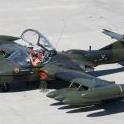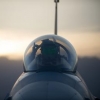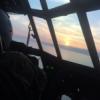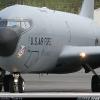Leaderboard
Popular Content
Showing content with the highest reputation on 09/26/2015 in all areas
-
Huggy it's Afghanistanimation! And the monkey has a butler.4 points
-
3 points
-
Wear of socks on hands is not authorized in 6.4.1 or 8.8. Report to the nearest Chief for remediation.3 points
-
2 points
-
2 points
-
For those of us who who had 1000 hours in one aircraft type, and 2000 hours in another before this kid was born in 1998, and who now need a nap and an Ensure to get through the day... what is "Battlefield"?2 points
-
Dude! You should know better than to post about Spec Ops Fighter Pilots on this board!!!1 OPSEC2 points
-
Unsure of the TX course. I am a current HC-J CSO at moody who flew the old P models for a few years as well. Training is almost identical for HC and MC. Ops tempo including TDY and deployment is roughly 1-1 with deployments being in the 4-5 month range. The mission changes with AOR. Mission was CASEVAC in Afganistan, and rescue alert elsewhere. In some AOR's it is easy to feel under utilized because they are primarily SOF. When the SOF guys do a high risk op, they usually have a SOF backup plan if it goes south leaving rescue as the backup to the backup, but we do get alerted and launched for pop up issues (i did one such mission on my last deployment, we were even the RV, left the helo's at home). In that AOR we also flew some overflow trash hauling missions since the single slick was not enough, and some overflow SOF infil/exfil/resupply since they often needed more airlift than they had. In more conventional AOR's that involve more fighter and bomber missions we pull airborne or ground alert for those guys as the primary rescue force. As far as flying opportunities, we honestly get less hours than the MC guys especially since there is a lot of alert time while deployed. At home, it seems the typical schedule will be 7x 5hr sorties per week, which should translate to 1-2 flights per week for most. As for job satisfaction, it depends greatly on your personality. If your satisfaction comes from being the center of the action and racking up hours, the HC may not be for you. For me the job satisfaction in this community comes from knowing that your presence makes all our guys safer, flying a highly rewarding mission that only occurs occasionally is needed, etc... I really enjoy the launch and have to plan the whole mission on the fly aspect as well. It does take a certain mentality to really love rescue. Valdosta, imho, is not bad. We are easy weekend trips from many awesome places, there are a few good restaurants and bars in town, the locals are very pro military, but it is definitely country living (pro or con depending on personal preference). If you are into cars there are plenty of activities from off road to autocross to drag racing, a few good gun clubs if you are into shooting, plenty of hunting opportunities. Morale at the squadron seems to be steadily improving. It seems that a combo of more utilization, many of the bitter types getting out/moving, and the new J capes are having a very positive effect on the community. It does seem that we are trending towards being more involved/utilized and getting more hours.1 point
-
maybe valid, I'm uncertain; we've yet to see our cyber dudes flex their might like the world saw the USAAF flex (CBO, nukes, etc.). Cyber & space guys keep telling me they have amazing capes justifying an independant service if only I were read in. Maybe. I've just had my fill of overt posturing while hiding failures behind layers of over classification; that's an old trick. An entirely separate issue is the practicality of attempting to create a new service from something not specific to military services. Meaning: if cyber/space branches off should they morph into a 5th service or new 3 letter agency? i don't know what structure would fit best, but it might not be military. Regardless, they'll be unable to integrate fully or be taken seriously while simultaneously insisting on total information control. Other tribes have secret capabilities too, but through years of combat discovered we'd be more effective with smartly placed fully read in liaisons sprinkled throughout the interagency. The JIATF construct has flaws but most times gets the right people cleared to know the right things. Cyber/space seems totally unable to overcome their classification barriers.1 point
-
1 point
-
Have your DO or another officer from your unit look her up in global and contact her. I went through something very similar. I can be quite frustrating when dealing with NCOs that don't care.1 point
-
Usually I see the wife being brilliant and the husband being a bumbling idiot. Misandry at its best.1 point
-
Trinity Kid, I saw from your other post to the forums that you're a 17 year old High School Senior. I'll keep that in mind as I do my best to answer what I think you're asking. Here goes. 1. This forum is mostly comprised of current, former, and aspiring military aviators (and a few other disciplines). We actually do some of the stuff you, and lots of other people, fantasize about doing while you're playing those video games. Some of it is real, but much of it is fantasy. There are some pretty big differences, mostly in the stakes associated with winning or losing for us, our coworkers, and a whole bunch of innocent people we try to defend. Note: we're normal people who play videogames too; for many of us, mostly as a way to blow off some stress while deployed. 2. You're looking at a very narrow element of our occupation if you think we just fly and have lots of free time. If you're the kind of person that only wants to think about flying while you're flying, you're not going to be very good at it. We know that, so we spend lots of our time on the ground studying (just like high school, but with explosions). We also spend much of our time on the ground performing administrative duties, everything from leading/training our young folks to recordkeeping to scheduling. The admin work takes tons of time, but it helps us develop as military officers. We also have time off work to spend with our families and our hobbies. We go to church, our kids little league games, shopping with our wives, work parties, and a few people even play video games. The way you choose to balance and prioritize those three areas, combined with your aptitude, determine how good of an aviator, an officer, and a husband/father you are. 3. There are ways to do something like what you're talking about if that's your goal. Combat pilots can do an Air Liaison Officer tour with the Army to learn to coordinate airstrikes from the ground perspective. It's usually a few years out of the cockpit, and you're not an infantryman kicking down doors, but it's kind of what you're talking about. Also, some aviation disciplines (rescue helicopters, special forces, rpa's, and close air support) integrate very closely with ground parties. You won't be the guy kicking down doors, but you'll watch or help them do it. Final advice. I tried to keep the sarcasm out, but it was tough. Remember you're talking to a group of professionals here that really do these things. We love to help where we can, but the way you phrased your questions didn't come across well. One of the first rules we teach our young aviators is to think before you speak. Our jobs are not video games, and don't work the same way. If you want to be an Army Ranger, pursue it with all your heart. If you want to be an AF pilot, pursue it with all your heart (and start that path by rocking college). Pick one.1 point
-
If you put your feet on the desk and don't tie your boots (fold the sock over technique) while wearing the super comfortable Nikes, well there's the problem: I'm sitting at a desk.1 point
-
Kid, the best thing about being a pilot is you can do whatever you want whenever you want.1 point
-
Got back recently from an interview at my unit of choice and was offered the job! The most unique of the "questions" was the first one, in which they said "This interview is all about you, so spend 5 minutes and tell us about yourself and what got you here". Most of the rest of the questions they asked fed on my answer to that particular question, and in the end the interview lasted about 45 minutes. At the end they offered me the opportunity to ask exactly 1 question of my own. I've been to a handful of interviews and while the format was similar (still sitting in a chair in front of a bunch of pilots), I felt the open ended nature of the interview resulted in a great dialogue that was beneficial to both me and the hiring board. It was very non-confrontational. I felt the real interview, though, was not what I said in the board room, but rather the general interactions you have between not only the pilots, but the enlisted members as well as the other candidates interviewing. Say yes to every opportunity they give you, whether it is to grab lunch, to hang out at the bar, or whatever. Hopefully you have strong test scores and good work experience, and beyond that, just be a good dude with a positive attitude and you will go far. My advice - be yourself and be laid back! Don't be afraid to joke around if you see the opportunity, and also don't take things personally if they give you a hard time about something stupid you do or say. Also, if your interview is in a different city, I'd highly recommend making a mini-vacation out of it and even taking your spouse with if you are married. Not only will it help you make an informed decision about living there, but it will also show the board that you are committed.1 point
-
The feminization of the Air Force (and I assume the other services) has been going on for some time now. I think it was a couple years ago that I looked at the male vs. female promo rates to O-4, O-5 and O-6 for the previous four or five promo boards. Bottom line, I figured out that though promo rates for females only seemed slightly higher than those for males, the cumulative differences over multiple promo cycles added up. I calculated that a female O-3 had 37.3% chance of making O-6, and a male O-3 had a 30.2% chance. That means that females were 24% more likely to eventually make O-6 than their male counterparts. Anecdotally, it often seems like the high-power dual-military couples I know, the husband separates/retires and flies for the airlines, while the wife stays in, due to her greater Air Force career prospects. This is crazy to me, since (again in my experience--that's all I can speak to) I've not found females to be substantially better officers/aviators than their male counterparts--they're certainly not 24% better. With clearly more emphasis from senior leaders on pushing/promoting based on gender and other factors, I can only assume that the disparity will only increase. This social engineering has gotta stop. TT1 point
-
Just more proof that military promotions are becoming more about your genitals and the color of your skin and less about your merit... https://ca.news.yahoo.com/pentagon-promotes-lean-groups-boost-women-leadership-122906058.html1 point
-
Macy's presented a "4th of July Fireworks Spectacular" today, broadcast nationwide by NBC. The Air Force Band was the primary band for the actual fireworks performance. Kool-Aid was one of the primary sponsors of the event. This all led to this glorious image.1 point
-
Shoe thread bump: A coworker and I got in an argument today. I say that black, or white socks are authorized with a flight suit, due to: 8.8. Socks. Socks should be made of cotton or wool. White, black, desert tan/sand, or sage green socks may be worn with either the FDU or DFDU. For wear and description see applicable paragraphs 6.4.1.1, 6.4.1.2 and 6.4.1.3 He argues sage green only (assuming green bag), due to: 6.4.1.1. Socks (black). Socks will be plain without design, clean, and serviceable. Black socks will be worn with low quarters, dress boots and black jungle/combat boots. Plain white socks may be worn under the black socks as long as the white socks are not visible. 6.4.1.2. Socks (sage green). Sage green socks will be worn with the sage green or tan boots. Plain white socks may be worn under the sage green socks as long as the white socks are not visible. 6.4.1.3. Socks (white). White socks are worn with athletic shoes and may have small logos. Thoughts...preferably with precedence and/or proof?-1 points
-
-1 points
















